WASHINGTON: Imagine a crisis breaking out somewhere in the world, and US President George W. Bush suddenly has to get the Kremlin on the hotline. After Sunday’s presidential election in Russia, who’s he going to call?
It’s the kind of question sure to vex US officials trying to sort out Russia’s leadership puzzle once Dmitry Medvedev, all but assured of winning the presidency, takes office and Vladimir Putin, his political patron, becomes prime minister.
Even when Putin is no longer the Russian head of state, few in Washington believe the former KGB spymaster will be ready to fully relinquish the levers of presidential power.
Instead, many Kremlinologists expect Putin to continue holding sway behind the scenes, especially in foreign affairs, signalling little chance for improvement in US-Russia relations that have sunk to a post-Cold War low.
Medvedev, a loyal protege whom Putin plucked from obscurity and anointed as his successor, will likely wield some influence at home but could be relegated to a largely ceremonial role on the world stage, experts say.
“In Russia, there will be a new man at the president’s desk, but it’s not clear how much independent presidential authority he will have,” said Stephen Sestanovich, an analyst at the Council on Foreign Relations, a Washington think tank.
With less than 11 months left of his own tenure, Bush has all but admitted the United States can do little except wait and see how Russia’s new hierarchy shakes out.
He told a news conference he knows little about Medvedev, who at 42 will be Russia’s youngest leader in modern times. The two have met only once before, in 2004, the White House says.
Bush famously said after his first meeting with Putin in 2001 that he trusted him after gaining a “sense of his soul”.
But that was before Putin’s government clamped down on independent media and opposition groups.
Critics say Bush was naive to believe Putin was committed to lasting democratic reform. Administration officials are reluctant to admit as much, and insist both countries have benefited from the personal rapport the two developed.
But aides acknowledge Bush has become more realistic about Putin, who has grown increasingly harsh in his criticism of the United States and more assertive of the former superpower’s place in world affairs.
‘MEDVEDEV – WHATEVER’
As for Medvedev, he is little known in the United States outside foreign policy circles. Sen. Hillary Clinton stumbled over his name in a Democratic presidential debate on Tuesday, finally saying, “Medvedev – whatever”.
Waiting to see who will hold the real power in Russia, Bush refused on Thursday to endorse the view that Medvedev will be Putin’s puppet. But he is expected to be cautious about forging a relationship with Russia’s new president.
Bush is mindful he can ill afford to antagonise Putin when he needs Moscow in the diplomatic fold to help pressure Iran and North Korea over their nuclear programmes.
For their part, Russian leaders could keep Bush at arm’s length as they await changes at the top in Washington in 2009.
“There’s not a lot of interest in Russia in dealing with President Bush right now,” said Michael McFaul, senior fellow at the Hoover Institution. “They see him as a very lame duck.”
Meanwhile, the issues that divide Washington and Moscow have become so intractable that some experts doubt much can be done to patch up relations any time soon.
One major irritant has been Kosovo’s declaration of independence from Serbia, a move backed by the United States and other Western powers but bitterly opposed by Russia.
Tensions also remain high over a planned US missile shield in Eastern Europe.
Bush insists it is meant to protect against threats from potentially hostile states like Iran and North Korea. Putin says the system could be used against Russia and sees it as an encroachment on Moscow’s former sphere of influence.
Emboldened by Russia’s energy wealth and bolstered by resurgent nationalism, Putin has won popularity at home to ensure support for staying on as the power behind the throne.
Opponents say voters have been denied a real choice because major television stations beholden to Putin or his allies have stacked the deck in favour of Medvedev, a technocrat who owes his political career to Putin.
Once outspoken against what he called Putin’s backsliding on democracy, Bush has been muted in his criticism ahead of Sunday’s election. It is widely seen as recognition Washington can do little to influence Russia’s internal politics.
Bush said he would now be watching for hints of change in Russian foreign policy. It will be interesting, he suggested, to see who shows up for Moscow at the next summit of top industrialized nations, to be held in Japan in July.—Reuters

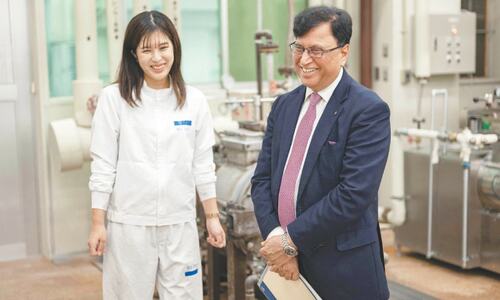
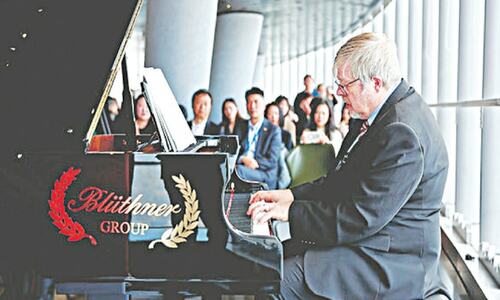












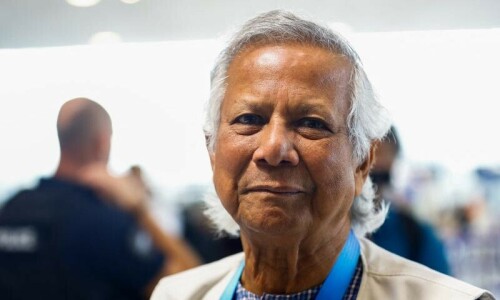
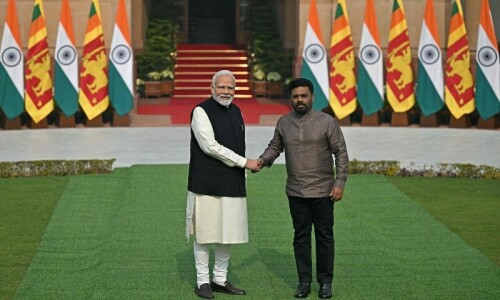

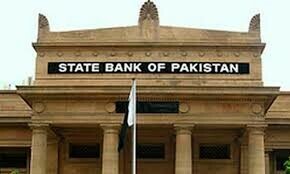
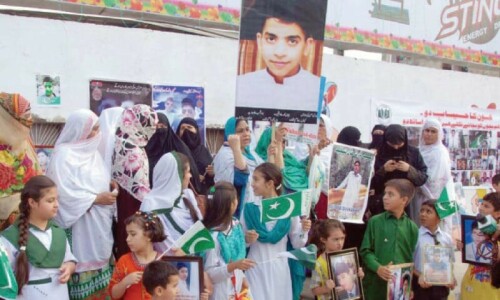



























Dear visitor, the comments section is undergoing an overhaul and will return soon.